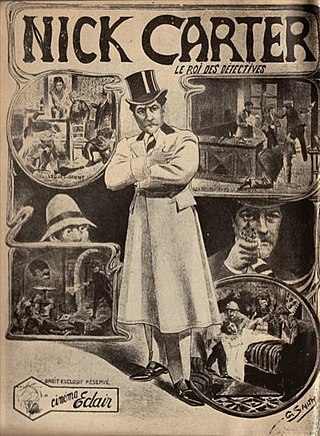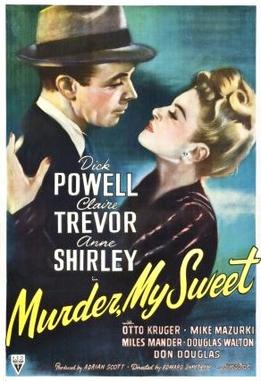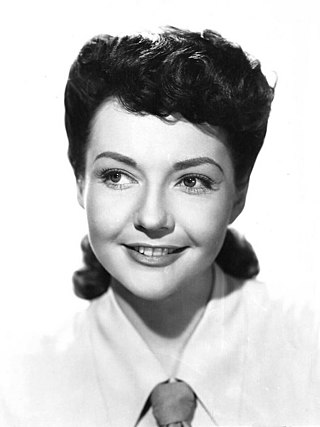
Dame Agatha Mary Clarissa Christie, Lady Mallowan, was an English writer known for her 66 detective novels and 14 short story collections, particularly those revolving around fictional detectives Hercule Poirot and Miss Marple. She also wrote the world's longest-running play, the murder mystery The Mousetrap, which has been performed in the West End since 1952. A writer during the "Golden Age of Detective Fiction", Christie has been called the "Queen of Crime". She also wrote six novels under the pseudonym Mary Westmacott. In 1971, she was made a Dame (DBE) by Queen Elizabeth II for her contributions to literature. Guinness World Records lists Christie as the best-selling fiction writer of all time, her novels having sold more than two billion copies.

Josephine Tey was a pseudonym used by Elizabeth MacKintosh, a Scottish author. Her novel The Daughter of Time was a detective work investigating the role of Richard III of England in the death of the Princes in the Tower, and named as the greatest crime novel of all time by the Crime Writers' Association. Her first play Richard of Bordeaux, written under another pseudonym, Gordon Daviot, starred John Gielgud in its successful West End run.

The G-String Murders is a 1941 detective novel written by American burlesque performer Gypsy Rose Lee. There have been claims made that the novel was written by mystery writer Craig Rice, but others have suggested that there is sufficient documented evidence in the form of manuscripts and correspondence to prove Lee wrote at least a large portion, if not the whole, of the novel under the tutelage of editor/friend George Davis with some essential guidance from her good friend Rice. The novel has been published under the titles Lady of Burlesque and The Strip-Tease Murders. Set in a burlesque theater, Lee casts herself as the detective who solves a set of homicides in which strippers in her troupe are found strangled with their own G-strings.

A mystery film is a genre of film that revolves around the solution of a problem or a crime. It focuses on the efforts of the detective, private investigator or amateur sleuth to solve the mysterious circumstances of an issue by means of clues, investigation, and clever deduction.
Anthony Gilbert, the pen name of Lucy Beatrice Malleson, was an English crime writer who was a cousin of actor-screenwriter Miles Malleson. She also wrote fiction and a 1940 autobiography, Three-a-Penny, as Anne Meredith.

Murder, My Sweet is a 1944 American film noir, directed by Edward Dmytryk and starring Dick Powell, Claire Trevor and Anne Shirley. The film is based on Raymond Chandler's 1940 novel Farewell, My Lovely. It was the first film to feature Chandler's primary character, the hard-boiled private detective Philip Marlowe.

Why Didn't They Ask Evans? is a work of detective fiction by Agatha Christie, first published in the United Kingdom by the Collins Crime Club in September 1934 and in the United States by Dodd, Mead and Company in 1935 under the title of The Boomerang Clue. The UK edition retailed at seven shillings and sixpence (7/6) and the US edition at $2.00.

Lynn Bari was a film actress who specialized in playing sultry, statuesque man-killers in roughly 150 films for 20th Century Fox, from the early 1930s through the 1940s.

Francis Healey Albertson was an American actor who had supporting roles in films such as It's a Wonderful Life (1946) and Psycho (1960).

A Memory of Murder (1984) is a collection of fifteen mystery short stories by American writer Ray Bradbury. They were originally published from 1944 to 1948 in pulp magazines owned by Popular Publications, Inc. that specialized in detective and crime fiction. Bradbury tried his hand in the genre but found the results unsatisfactory. He referred to the stories as "the walking wounded" in his introduction to A Memory of Murder.

Appointment with Death is a 1988 American mystery film and sequel produced and directed by Michael Winner. Made by Golan-Globus Productions, the film is an adaptation of the 1938 Agatha Christie novel Appointment with Death featuring the detective Hercule Poirot. The screenplay was written by Winner as well as Peter Buckman and Anthony Shaffer.
Patrick Quentin, Q. Patrick and Jonathan Stagge were pen names under which Hugh Callingham Wheeler, Richard Wilson Webb, Martha Mott Kelley and Mary Louise White Aswell wrote detective fiction. In some foreign countries their books have been published under the variant Quentin Patrick. Most of the stories were written by Webb and Wheeler in collaboration, or by Wheeler alone. Their most famous creation is the amateur sleuth Peter Duluth. In 1963, the story collection The Ordeal of Mrs. Snow was given a Special Edgar Award by the Mystery Writers of America.

Craig Rice was an American writer of mystery novels and short stories, described by book critic Bill Ruehlmann as "the Dorothy Parker of detective fiction, she wrote the binge and lived the hangover."

Jean Marie "Jeff" Donnell was an American film and television actress.

Home Sweet Homicide is an American mystery film directed by Lloyd Bacon and released in 1946. It stars Peggy Ann Garner, Randolph Scott and Lynn Bari, and was based on the eponymous mystery novel by Craig Rice.

Agnes Christine Johnston was an American screenwriter who wrote for more than 80 films between 1915 and 1948.

Mrs. O'Malley and Mr. Malone is a 1950 comedy/murder mystery film set on board a train. It stars Marjorie Main and James Whitmore. It is based on the short story "Once Upon a Train " by Stuart Palmer and Craig Rice.

Closed Casket is a work of detective fiction by British writer Sophie Hannah, featuring Agatha Christie's Hercule Poirot. Hannah is the first author to have been authorised by the Christie estate to write new stories for her characters. Hannah's work closely resembles the Golden Age of Detective Fiction in its structure and tropes. Closed Casket even includes a plan of the house in which the murder takes place; such plans were sometimes used in Golden Age novels to aid the reader in their solving of the mystery puzzle.
















